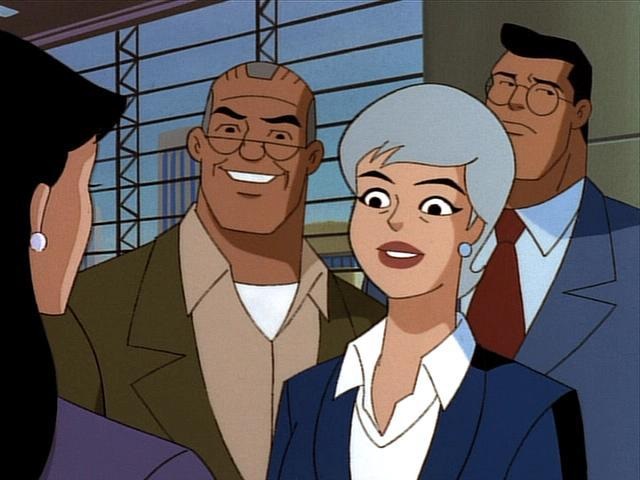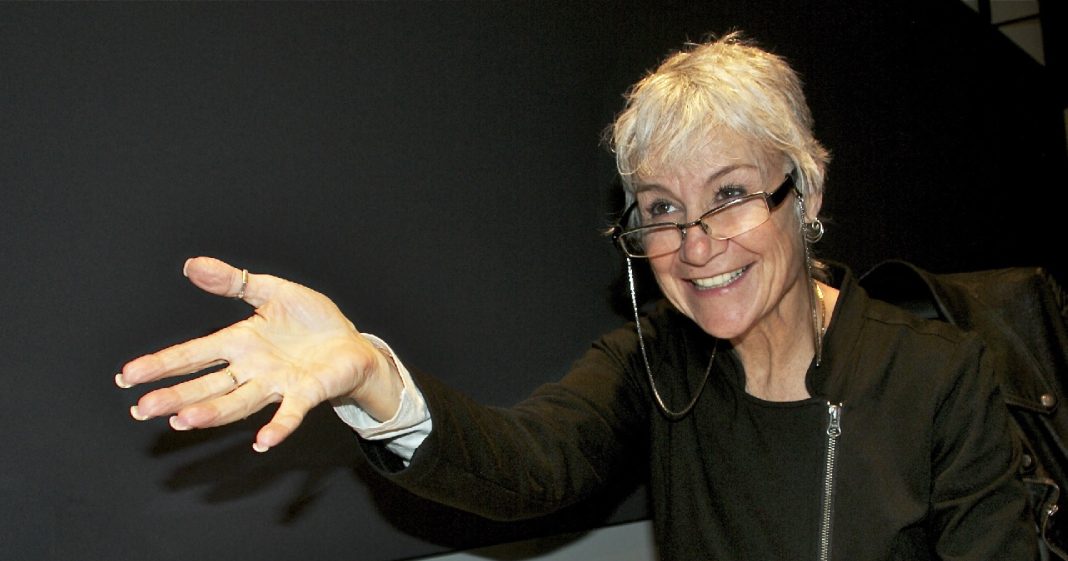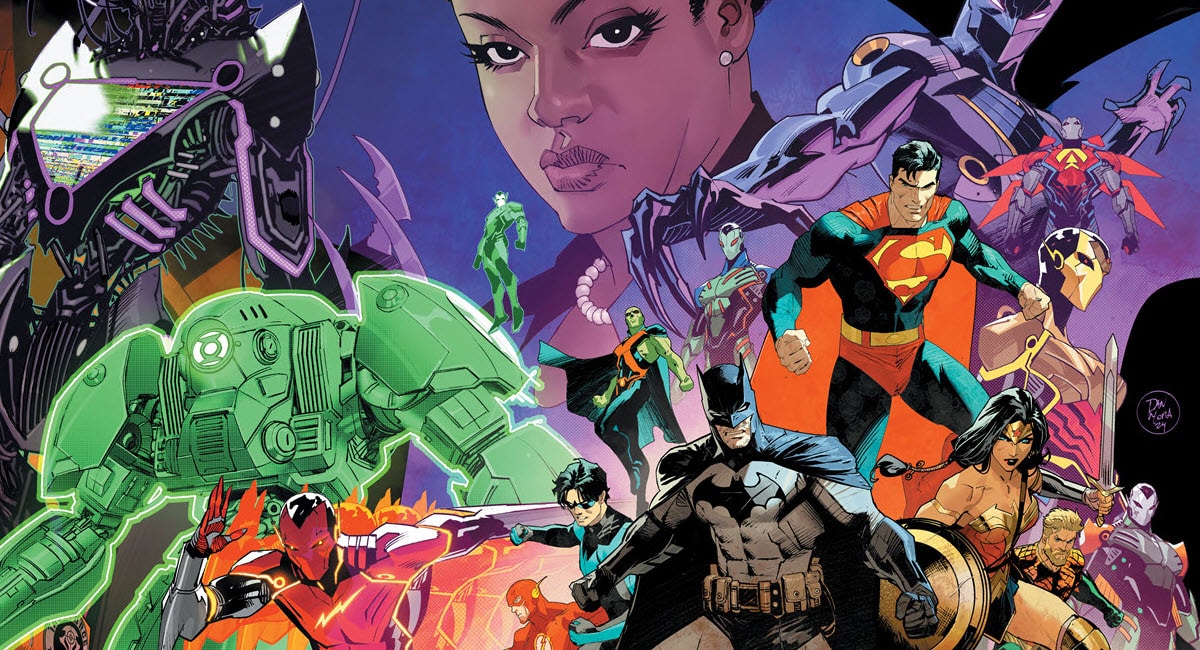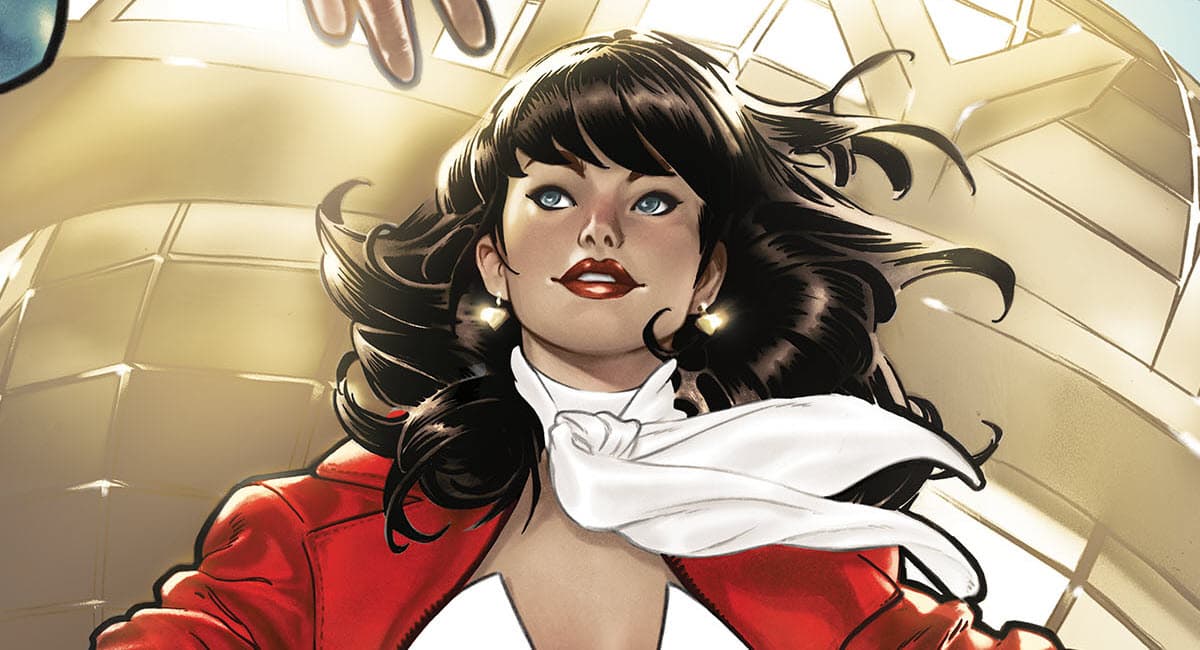If you watched any cartoon in the last few decades, there’s a very good chance that legendary voice director Andrea Romano was involved. Since beginning her career in the animation industry at Hanna-Barbera Productions in the ’80s, Romano has earned a reputation as the best in the business, garnering eight Daytime Emmy Awards (yes, eight), a Peabody Award, and a Lifetime Achievement Award from State University of NY. Now retired, Romano’s legacy in the voiceover industry still casts a long shadow.
Among fans of the world of DC Comics, Romano is perhaps known for her work in the acclaimed DC Animated Universe. After Batman: The Animated Series, considered by many as the definitive depiction of the character, Romano followed it with Superman: The Animated Series. In the 25 years since Superman: TAS premiered, the series is likewise regarded as a quintessential interpretation of the Man of Steel.
With the release of Superman: Complete The Animated Series on Blu-ray, The Beat had the fortune to chat with the living legend as Andrea Romano as she looked back on her time working on Superman: The Animated Series. During our discussion, Romano revealed what she was looking for in casting the voice for the Man of Steel, the relationships she developed with the actors, as well as her thoughts on the current state of the voiceover industry.
Taimur Dar: Something I didn’t know until I interviewed Tim Daly was that he learned about the casting for the Superman animated series through one of the writers for Wings whose wife worked with you and mentioned you were having trouble finding the right voice. It dawned upon me pretty quickly that it may have been TV writer Christopher Lloyd who is married to Arleen Sorkin, the voice of Harley Quinn. So I’m really curious if you can recall if that weird indirect connection to Wings is what led to casting Tim Daly but what the Superman voice casting process was like in general?
Andrea Romano: You just gave me a whole bunch of information that I didn’t have! I was trying to remember how we got Tim Daly in the room and who suggested him. I couldn’t remember if it was an agent or whoever. I do remember it was near the end of the casting period. It wasn’t that we were getting desperate because we did have a couple of actors that we liked but we wanted to make sure we had done a thorough job seeing everyone who was appropriate. We weren’t saying that we needed to have a recognizable on-camera actor play the role but it certainly doesn’t ever hurt for publicity. So it was like, “Why not read him? He’s a good actor and he might have an idea for this role that we haven’t heard yet.” And in fact, he did.
What I think he did so well was he made the boy scout aspect of Clark Kent and Superman be attractive. It wasn’t something that could be mocked. This was a character you could convincingly believe would always make the right decision. As opposed to Batman who is a human with foibles could screw up and it makes him an interesting character too. But Superman or Clark Kent would pretty much always make the good, right, proper decisions that would give us the most positive outcome. Tim was able to voice that in a way that was really subtle and not cartoony or fakey. And that was crucial.
I think you’re right about the writer. It doesn’t matter to me where the ideas come from. If they’re good ideas they should be explored. Whoever did that out there in the world, thank you!
Dar: Speaking of casting, as a kid I had no idea the voices of the Kents, Mike Farrell and Shelley Fabares, were an actual married couple. I’m really curious how that casting brilliance came about and if they recorded together?
Romano: They did indeed record together. I believe they auditioned individually. I don’t think anybody ever told us they were married. I don’t think they were represented by the same agent. I think we just auditioned both these talented actors to play these roles. I could be remembering this inaccurately but when the decision came down to who we were going to cast for those roles, they were the two top people. Then I remember going, “They’re a married couple!” And then thinking, “How perfect is that! We’re casting a married couple to play a married couple!” Because there’s a comfort that two actors who know each other so well have playing kind of themselves. They were just so naturally good and I have to attribute some of that to the fact that they are actually married and comfortable with each other.

Dar: Something I’ve heard you talk about before is making sure the projects you work on appeal to a wide audience. The best example for me right now is Ted Lasso. I have no interest whatsoever in soccer but I’ve fallen in love with the characters and story.
Romano: It’s fantastic isn’t it? I love it too! I haven’t watched the new season yet.
Dar: You’ve got to watch it as soon as you can!
For Superman, how did go about making a show that appealed beyond the typical male comic book reader audience?
Romano: Very good question! I think it had a built-in fanboy audience because Superman is just such a wonderful character for young boys to read about and try to emulate in certain ways. But I wanted to make a show both for the Batman series and Superman series that would appeal to women as well. So there was a feminine viewpoint that wasn’t disregarded. Lois was a great vehicle to do that. She was smart and successful and she didn’t put up with male garbage. That helped. I also wanted it to be a show that kids could watch with their parents. Let’s say 25 years ago somebody is sitting down with their 5-year old kid and says, “The first time I ever saw Superman was…,” then a huge circle of knowledge in the DC world continues. That’s very pleasant that I’m a little part of that. A tiny cog in that wheel that helps it move around so that kids, teenagers, parents, and grandparents watch it.
I remember many years ago when I first doing the series, one of my sisters who works in publishing sent me an article in the New Yorker. They were interviewing inmates at Rikers Island and asking them what their favorite viewing was. They talked about soap operas. They loved the soap operas. Then they had to go back to their cells for headcount. Then they would rush to the rec room to watch the next hour and half of programming which included Batman, Superman, and Pinky and the Brain. And those were all three of my shows! I had no idea that this was a demographic I was reaching. But I thought it was so cool that this was an entertainment for an extremely wide audience.
Dar: Now that’s a really fascinating thing I’m learning for the first time!
Romano: Isn’t it! I still have that article somewhere amongst my most prized possessions. I had a big fanbase at Rikers Island at one time.
Dar: You’re retired now but it’s an understatement to say that the VO industry has undergone a tremendous change in the past year, Even though you’re not working anymore when you started your career in the ’80s did you ever imagine the technology would evolve to a point where recording from home instead of a studio was possible?
Romano: I did. What I wanted to do was be on the north shore of Hawaii directing everybody from wherever they were and still be able to work from long distance. Now it could be done but I’m not working anymore! But I still want to go to Hawaii and live there if I can. I did hope that would happen. The drag about it is I like the human connection of actors walking into a studio and giving me a big hug and telling me how their day has gone and meeting the other actors I brought in for that session and telling stories and laughing and joking and working together and producing a beautiful cartoon. And then saying goodbye to everybody and hugging again. I really like that. I always said that casting was like making the cake and directing was like eating the cake. I like the eating the cake part and I liked being all together in the room because we could enjoy it together.
I kind of feel like I retired at the right time in that things changed to the point where, even before the pandemic, it was happening that more and more people were recording from their own facilities. There’s a lot of that that makes great sense. You can get people that couldn’t normally get because they have a setup in their home and they can do it in 25 minutes in between something else that they’re doing. But it’s a little bit shall we say prophylactic to have people so cleanly in their stable which I completely get. I think it’s perfectly logical. But even to have them on a Zoom call to record them I would miss being with them in-person. The other thing is there’s something you can do with an actor when you’re all in the room at the same time. You can walk right up to them and just give them a physical example of, “OK, this character is so frustrated that they’re clenching their fist like this! And their whole body is so tense!” So the next performance they give they are physically doing that, mirroring what you did, and the voice changes. And I get the performance that I want. It’s not that that can’t be done over a video screen of some sort but it’s way different to do it in-person.
Dar: So glad I got to hear the perspective on the current state of the VO industry from legends such as yourself! It’s been an immense pleasure chatting with you!
Romano: For me as well!









